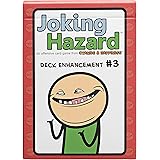Unlock the Secret to Lowering Cholesterol: 5 Easy Home Hacks You Never Knew Existed!
So, you’ve just received the news from your doctor—your cholesterol levels are higher than your hopes for a weekend brunch buffet! It’s a shocker, for sure, and not exactly the news you want to hear while dreaming of creamy omelets and crispy bacon. But fear not! Instead of surrendering to a lifetime of medication, what if I told you that with a few simple tweaks to your diet and lifestyle, you could take control of your cholesterol naturally? That’s right. You can give those less-than-desirable cholesterol levels a run for their money without losing your love for food. In this article, we’ll dive into some surprisingly easy changes you can make—because who says being healthy has to be boring? Get ready to learn how to swap out those pesky “bad” fats, embrace the “good” ones, and throw in a little exercise for good measure. After all, wouldn’t it be nice if reducing cholesterol felt more like a joyful journey than a dreary chore?

Image by Steve Buissinne from Pixabay
Hearing that you have high cholesterol is never good news. It’s usually announced by the doctor once you’ve had some labs done as part of your annual checkup. If your cholesterol is really high or you’ve been high for too long, medications are usually discussed.
If you maintain high cholesterol, it can lead to hardening of the arteries, strokes, and heart attacks.
Don’t want to be on meds? There are plenty of diet and lifestyle changes you can make so you can manage your cholesterol naturally.
Eliminate “Bad” Fats
Trans and saturated fats are considered “bad.” Harvard Medical School suggests decreasing your intake of these fats. Be careful not to intake more sugar as you decrease these fats, though.

Photo by Jonathan Borba on Unsplash
Increase “Good” Fats
Increasing your good fats lowers your LDL (the bad form of cholesterol). Such foods include olive oil, peanut oil, and other plant-based oils. Various fish like salmon, tuna, and herring can also help you get these oils into your diet.
Increase Fiber Intake
More soluble fiber added to your diet is what the Mayo Clinic recommends. This includes such food sources as darker fruits and veggies, nuts, beans, and whole grains.

Image by Wolfgang Eckert from Pixabay
Exercise Frequently
Exercise is capable of impacting your cholesterol level (and can help you lose weight, too). It’s suggested that you do aerobic exercises for at least 30 minutes a day, four times a week.
Reduce Stress
Stress is capable of driving cholesterol numbers up. This means that you should actively work to reduce stress, whether it’s with yoga, deep breathing exercises, or just socializing to let off some steam.
None of this sounds too hard, right? With a bit of effort, you can keep your cholesterol down in order to lead a healthier life.



















